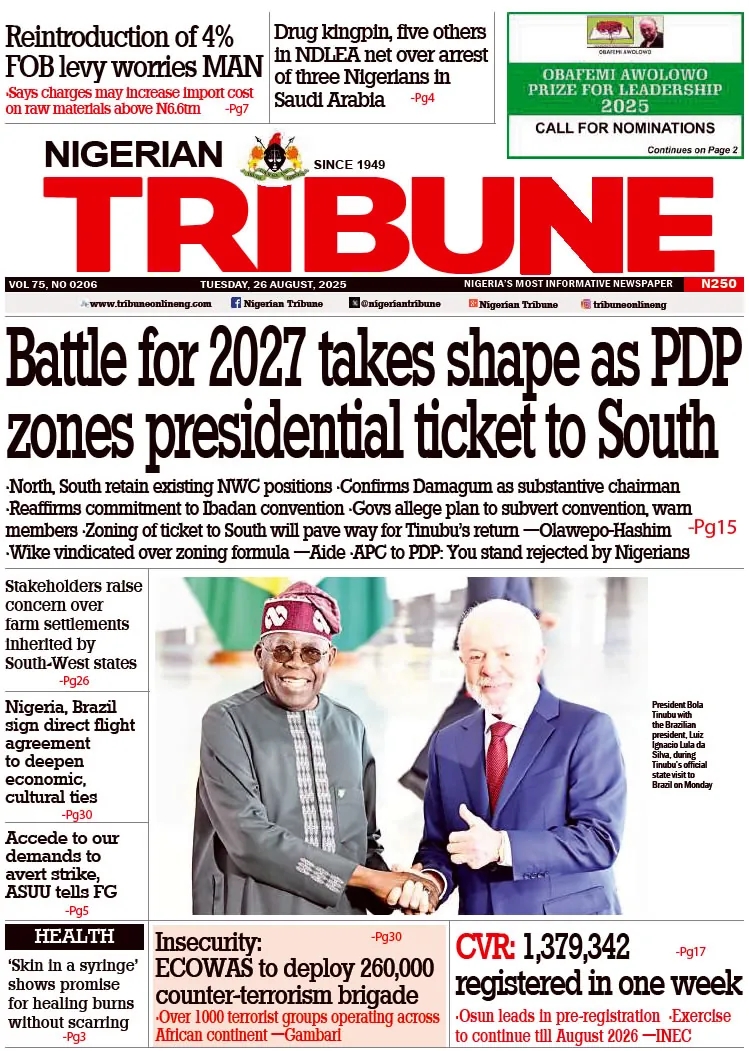Renowned Professor of African History, Toyin Falola, has called on African nations to urgently integrate indigenous knowledge systems into their educational frameworks. He argued that true transformation across the continent depends on embracing local epistemologies, reclaiming cultural pride, and building education systems that serve both global engagement and local affirmation.
The celebrated scholar made this passionate appeal on Thursday while delivering a public lecture titled “Power, Education and Change in Africa” at Karl Kumm University, Jos. The event formed a significant part of a weeklong celebration themed “Toyin Falola: Celebrating a Scholar and Public Intellectual,” held from June 17–21, 2025, in honour of the eminent academic.
“It is imperative to recognize the value of indigenous knowledge systems and local cultural practices, both of which should be included into the instructional agenda,” Falola declared. “If given this chance, students would be more ready to engage in a globalized society and would also enable them grow to be proud of their background. Education must not alienate Africans from their heritage. Our curricula should affirm who we are even as we prepare to engage globally.”
Widely regarded as one of Africa’s most prolific and influential scholars, Falola’s lecture traced the deep historical entanglements between colonialism, power, and the purpose of education in Africa. He noted that although education has always been a vehicle for change, it has also historically functioned as a tool of domination.
According to him, “The educational system is being affected by the prevailing power structures on the continent. Power is social as well as political and economical. The dynamics of power influence who has access to education, the nature of that education, and the results that arise from it.” He emphasized that educational curricula designed by elites often reinforce socio-economic inequities and mirror the power imbalances inherited from colonial history.
“Sometimes education is used as a tool to maintain the status quo,” he said, “thereby strengthening the existing socio-economic inequities and power relations.”
Falola traced the colonial legacy that shaped African education systems, pointing out that they were designed to create compliant administrative classes, reinforce European superiority, and suppress indigenous worldviews. “Colonial officials essentially broke the links between African people and their cultural past by excluding indigenous knowledge from the official educational system,” he said. “This deprived them of the intellectual means to make sense of their own history and identity.”
Reflecting on the political struggles that defined African independence movements, Falola noted that education has always been central to both domination and liberation. “Education in Africa has always been connected to political struggle,” he said. “It gives people the means necessary to see their own oppression and pursue group emancipation.”
He observed that although post-independence African states sought to reconstruct their educational systems, they faced major hurdles—ranging from limited resources to the persistent dominance of Eurocentric content. “Many of the African independence struggles were driven by reform of the education system,” he recalled. “Yet, the legacy of colonial education systems—which gave European knowledge and cultural standards first priority—persisted.”
Beyond historical critique, Falola offered a visionary framework for the future of African education. He advocated for inclusive curricula that balance global competencies with local relevance, emphasize critical thinking and creativity, and foster democratic participation. “Education provides the intellectual and social abilities required to engage with and challenge currently existing power systems,” he said. “It is a vital component of the process of societal evolution.”
He further stressed the need to invest in teacher training, curricular reform, and educational access for all—particularly marginalized communities. “African education systems must become more effective, responsive, and relevant,” he added. “The potential is there, but it must be unlocked by policy, political will, and the right pedagogical orientation.”
Asserting the lasting damage caused by colonial educational ideologies, Falola explained that many Africans continue to suffer from a fragmented sense of identity. “Many Africans developed a dual consciousness as a result of their instruction to aspire to Western values while also separating from their own cultural identities,” he said. “This ideological struggle often left the African populace feeling self-doubt.”
He concluded by urging African leaders and educators to realign the purpose of education with the continent’s developmental aspirations. “The persistence of economic disparities, political corruption, and social instability is partly the result of educational systems that have failed to democratize knowledge,” he said. “To break this cycle, we must re-anchor education in the lived realities and histories of African peoples.”
The lecture drew a diverse and appreciative audience comprising academics, students, religious leaders, policymakers, and members of the wider public, all eager to hear the insights of a man whose scholarship continues to shape global understanding of African history and identity.
Professor Falola, the Jacob and Frances Sanger Mossiker Chair in the Humanities at the University of Texas at Austin, has authored over 100 books and is celebrated worldwide for his intellectual leadership and advocacy for the African experience.
ALSO READ TOP STORIES FROM NIGERIAN TRIBUNE
WATCH TOP VIDEOS FROM NIGERIAN TRIBUNE TV
- Let’s Talk About SELF-AWARENESS
- Is Your Confidence Mistaken for Pride? Let’s talk about it
- Is Etiquette About Perfection…Or Just Not Being Rude?
- Top Psychologist Reveal 3 Signs You’re Struggling With Imposter Syndrome
- Do You Pick Up Work-Related Calls at Midnight or Never? Let’s Talk About Boundaries







